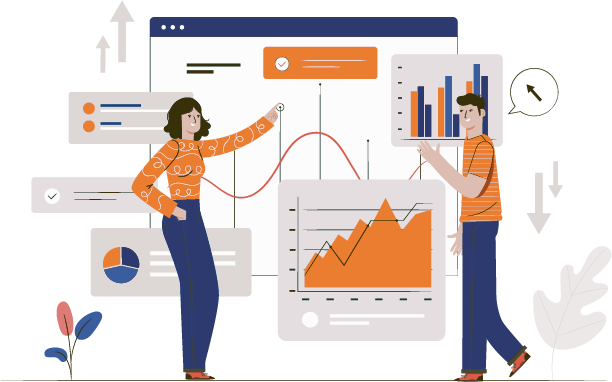Best CRM Tools for Scaling Client Management in Healthcare Ultimate Checklist
- Eldon Riley

- Aug 20, 2025
- 9 min read
Managing clients in healthcare is crucial. A good CRM tool can help.
Healthcare providers need efficient client management. CRM tools simplify this process. They offer features tailored to healthcare needs. Efficient client management leads to better patient care and streamlined operations. The right CRM tool can make a big difference. Choosing the best one involves understanding your specific needs.
This checklist will help you find the best CRM tools for scaling client management in healthcare. Whether you are a small clinic or a large hospital, the right CRM can enhance your service delivery. Let's explore the top options available and how they can benefit your healthcare practice.

Key Features Of CRM Tools
When choosing a CRM tool for scaling client management in healthcare, it's essential to know the key features that will make your job easier and more efficient. Effective CRM tools are a game-changer, allowing you to streamline your processes and improve patient care. Let's dive into the most important features you should look for in a CRM tool.
Patient Data Management
Keeping track of patient data is crucial in healthcare. A good CRM tool allows you to store and manage patient records efficiently. You should be able to access detailed medical histories, treatment plans, and contact information easily.
With digital data management, you reduce the risk of losing important information. Automated data entry and updates help to keep records current and accurate.
This ensures that you and your team can provide the best care possible.
I once worked with a clinic that struggled to keep patient records organized. After implementing a CRM tool, their data management improved significantly. They could quickly access patient history and provide more personalized care.
Appointment Scheduling
Scheduling appointments manually can be time-consuming and prone to errors. A robust CRM tool offers appointment scheduling features that simplify this process. Look for tools that provide automated reminders and calendar syncing.
Automated reminders can reduce no-shows and ensure that patients don't miss their appointments. Calendar syncing helps you avoid double-booking and keeps your schedule organized. This allows you to focus more on patient care and less on administrative tasks.
Imagine having a system that sends reminders to patients and syncs with your calendar. How much time and stress would that save you? The right CRM tool can make this a reality.
Communication Integration
Effective communication is key in healthcare. CRM tools with communication integration features enable you to connect with patients through various channels. Look for tools that support email, SMS, and even social media messaging.
This integration ensures that you can reach patients where they are most comfortable. It also helps you keep track of all communication in one place. This is particularly useful for follow-ups and sending important updates.
Think about the last time you tried to reach a patient but couldn't get through. With a CRM tool that integrates communication, you can improve your chances of connecting. This leads to better patient engagement and satisfaction.
These key features are essential for any CRM tool in the healthcare industry. By focusing on patient data management, appointment scheduling, and communication integration, you can improve your workflow and provide better care. What features do you find most valuable in a CRM tool? Share your thoughts in the comments below!
Top CRM Tools For Healthcare
Discover the best CRM tools to enhance client management in healthcare. Streamline patient interactions and improve overall efficiency with these top picks. Boost your healthcare practice today.
When managing client relationships in healthcare, the right CRM tool can make a significant difference. These tools not only streamline patient management but also enhance the overall experience for both patients and healthcare providers. Let's delve into some of the top CRM tools that can help you scale your client management effectively.
Tool A Overview
Tool A is renowned for its user-friendly interface and robust features. It offers a comprehensive patient database, allowing you to track medical histories, appointments, and treatment plans effortlessly. It also integrates seamlessly with other healthcare software, ensuring all your data is synchronized. The real-time analytics feature provides insights into patient trends and helps improve service delivery.
Tool B Overview
Tool B stands out with its advanced communication features. It supports automated appointment reminders, follow-up notifications, and personalized email campaigns. This tool is perfect for enhancing patient engagement and reducing no-show rates. Its secure messaging system ensures all communications comply with healthcare regulations, keeping patient data safe.
Tool C Overview
Tool C excels in customization, allowing you to tailor the CRM to your specific needs. You can create custom fields, forms, and workflows to match your practice’s requirements. Its intuitive dashboard helps you monitor key performance indicators at a glance.
This CRM also offers excellent customer support, ensuring any issues are resolved quickly and efficiently. Choosing the right CRM tool can transform your healthcare practice. Have you considered which features are most crucial for your needs?

Evaluating CRM Tools
Choosing the best CRM tools for healthcare can streamline client management and improve patient care. This checklist highlights top options, ensuring effective scaling and seamless integration.
When you’re scaling client management in healthcare, choosing the right CRM tool is crucial. Evaluating CRM tools involves looking at several key factors. These factors will help you determine which tool best fits your needs and ensures efficient, scalable operations.
Usability
Usability is paramount. If a tool is too complex, your team won't use it effectively. Look for a CRM with an intuitive interface. Consider the learning curve. Can your team quickly adapt to this tool? The easier it is to use, the faster you can integrate it into your daily workflow. Make sure the CRM offers training resources. Having tutorials, FAQs, and support can make a big difference.
Customization Options
Customization options are essential. Your healthcare practice has unique needs that a one-size-fits-all CRM might not meet. Check if the CRM allows you to tailor dashboards and reports. This flexibility can help you track the specific metrics that matter most to you. Investigate whether you can add custom fields. This feature is crucial for capturing patient-specific information that standard CRMs may overlook.
Scalability
Scalability ensures the CRM grows with your practice. As you add more patients and services, your CRM should handle the increased load. Assess the CRM’s ability to manage more users. Can it support your team as it expands? Look at the data storage capacity. A scalable CRM will offer increasing storage to match your growing data needs. Evaluate whether the CRM has features that you can unlock as your practice grows. This foresight can save you from having to switch tools later. Choosing the right CRM tool can feel daunting, but focusing on usability, customization options, and scalability can guide you to the best fit for your healthcare practice. What features do you find most critical in a CRM tool?
Security And Compliance
Security and compliance are crucial in the healthcare industry. Protecting patient data is a top priority. Using CRM tools that meet these needs is essential. Let’s explore the key aspects of security and compliance in CRM tools for healthcare.
Hipaa Compliance
HIPAA compliance is a must for healthcare CRMs. The Health Insurance Portability and Accountability Act (HIPAA) sets the standard. It ensures that patient data is protected. CRM tools must adhere to these regulations. This includes secure storage and handling of patient information. Look for CRMs that offer HIPAA-compliant features.
Data Encryption
Data encryption is vital for securing patient information. It transforms data into unreadable code. Only authorized users can decode it. This prevents unauthorized access. Choose a CRM that uses strong encryption methods. This adds an extra layer of security to your data.
User Access Control
User access control is another important feature. It limits who can access certain data. Not all users need access to all information. Set permissions based on user roles. This ensures that only authorized personnel can view sensitive data. It helps maintain data privacy and security.

Integration Capabilities
Integration capabilities simplify client management by seamlessly connecting various healthcare systems. This ensures efficient data flow and improved patient care.
When it comes to managing clients in healthcare, having CRM tools with robust integration capabilities is essential. These tools can help streamline your processes, reduce redundancy, and improve patient care. Let’s break down the integration capabilities that make a CRM tool stand out in the healthcare industry.
EHR Integration
Integrating your CRM with Electronic Health Records (EHR) is a game-changer. It allows you to access patient records, treatment history, and other vital information directly from your CRM.
This seamless integration means you spend less time switching between systems and more time focusing on patient care. Imagine being able to pull up a patient’s complete medical history with just a few clicks. This not only improves efficiency but also ensures that you are always up-to-date with the most accurate information.
Third-party Applications
A good CRM should play well with other third-party applications you use daily. Whether it's billing software, appointment scheduling tools, or telehealth platforms, the ability to integrate these applications can vastly improve your workflow. Think about the time saved when your billing system automatically updates in your CRM. No more manual entry errors. Plus, it ensures that your team is always on the same page, working with the same information.
API Support
API support is another critical aspect of integration capabilities. With a strong API, you can create custom integrations tailored to your specific needs. This can be particularly useful for healthcare providers with unique requirements that off-the-shelf solutions can't meet. For example, you might want to create a custom integration that alerts your team when a patient’s lab results are ready. This proactive approach can improve patient satisfaction and ensure timely follow-up. Questions to Consider - Have you experienced delays due to lack of integration between your CRM and other systems? - What third-party applications do you use that could benefit from better integration?
Takeaway Integration capabilities can significantly enhance your client management. By ensuring your CRM integrates well with EHR, third-party applications, and has strong API support, you can streamline operations and improve patient care. What integrations do you think would benefit your practice the most?
Cost Considerations
Evaluating cost is crucial in choosing the best CRM tools for healthcare. Balancing features with budget helps maximize client management efficiency.
When choosing the best CRM tools for scaling client management in healthcare, cost considerations play a crucial role.
Understanding the financial aspects can save you from unexpected expenses and help you plan a sustainable budget. Let's explore some key cost factors you should consider.
Subscription Models
CRM tools typically offer various subscription models to cater to different needs and budgets. These models might include monthly, annual, or even biennial subscriptions. Monthly subscriptions offer flexibility but can be pricier in the long run.
Annual subscriptions, on the other hand, often come with discounts but require a larger upfront investment. Think about your budget and cash flow. Would you prefer manageable monthly payments, or can you afford a lump sum to save in the long run?
Hidden Costs
Beware of hidden costs that might sneak up on you. Many CRM tools advertise a base price, but additional features can quickly add up. Consider expenses such as training fees, customer support, or integration with other systems.
These costs can sometimes be overlooked in initial planning. Look out for any potential costs that are not immediately obvious. Make sure to ask vendors for a detailed breakdown of all potential expenses.
ROI Analysis
Calculating the return on investment (ROI) is essential for understanding the value of a CRM tool. A good CRM should not just be a cost but an investment that pays off. Estimate the time saved and the improvement in patient management efficiency.
Compare this to the total cost of the CRM tool. Think about how the CRM tool will improve your service quality and client satisfaction. Will it help you retain more clients or attract new ones? A higher ROI can justify a higher initial cost. By carefully considering these cost aspects, you can choose a CRM tool that provides the best value for your healthcare practice. What are your top priorities when evaluating CRM costs?

Best Practices For Implementation
Implementing the best CRM tools for scaling client management in healthcare requires careful planning. Using best practices ensures a smooth transition. This section covers key practices to follow.
Staff Training
Proper training is crucial for successful CRM implementation. Ensure all staff members understand the new system. Conduct workshops and hands-on training sessions. Provide easy-to-follow tutorials and guides. Regular training updates can help staff stay proficient.
Data Migration
Data migration is a vital step in CRM implementation. Clean and organize existing data before migration. Ensure data accuracy to avoid future issues. Use secure methods for data transfer. Test the migrated data thoroughly. This ensures everything works as expected.
Continuous Improvement
Continuous improvement keeps your CRM effective. Regularly review and update CRM processes. Gather feedback from staff and clients. Use this feedback to make necessary adjustments. Stay updated with CRM tool updates and new features. This helps maintain efficiency and client satisfaction.
Frequently Asked Questions
What Are The 4 Types Of Crm?
The 4 types of CRM are Operational, Analytical, Collaborative, and Strategic. Operational CRM focuses on automation. Analytical CRM deals with data analysis. Collaborative CRM enhances communication. Strategic CRM aims at long-term customer relationships.
What Are Crm Management Tools?
CRM management tools help businesses manage customer relationships. They automate sales, marketing, and support tasks. Popular tools include Salesforce, HubSpot, and Zoho. These tools enhance customer engagement and improve business efficiency.
What Is Crm Software In Healthcare?
CRM software in healthcare manages patient relationships, tracks interactions, and improves service quality. It streamlines communication, appointment scheduling, and patient data management.
What Is The Best Crm For Medical Clinics?
The best CRM for medical clinics is Salesforce Health Cloud. It offers patient management, appointment scheduling, and data security features.
Conclusion
Choosing the right CRM tool boosts client management in healthcare. Efficient systems enhance patient satisfaction. They streamline processes and improve communication. The tools listed can be tailored to your needs. Start exploring these options today. Better client management awaits. Make informed decisions for your healthcare practice.
Scale effectively and serve clients better. Your practice will thrive with the right CRM.
Let’s Build Your Success Together
Don’t wait for results to happen—create them. With URDigital Tech, you’re not just getting a service; you’re gaining a partner invested in your success.
Email us at: solutions@urdigitaltech.com
Text us at: (716) 400-0769
Contact us today to see how we can help you turn ideas into impact and opportunities into achievements.





Comments